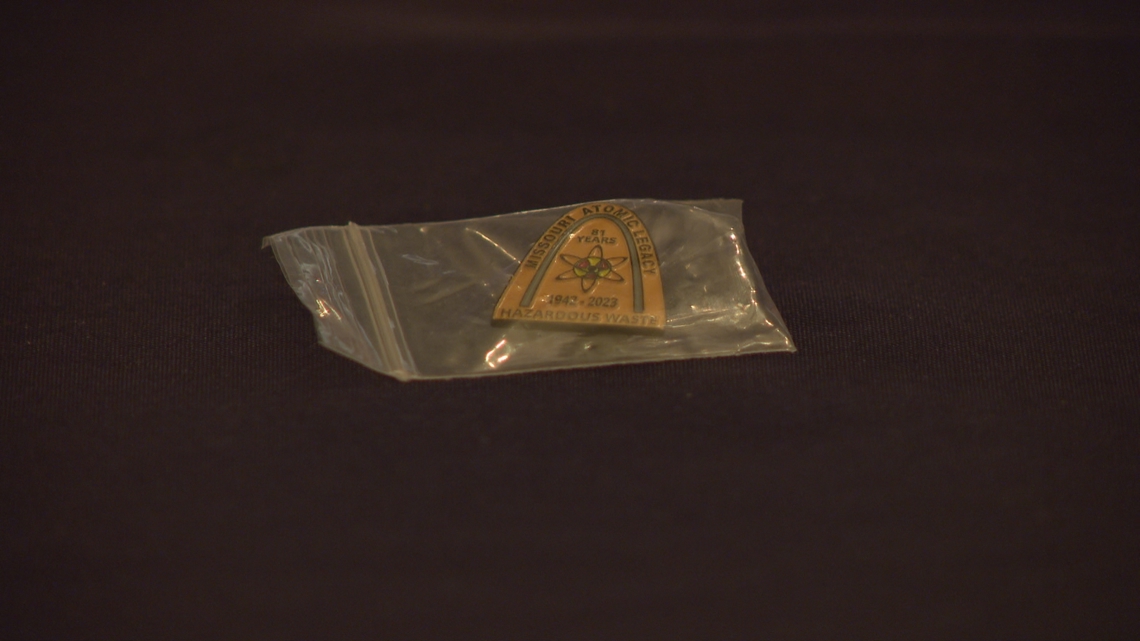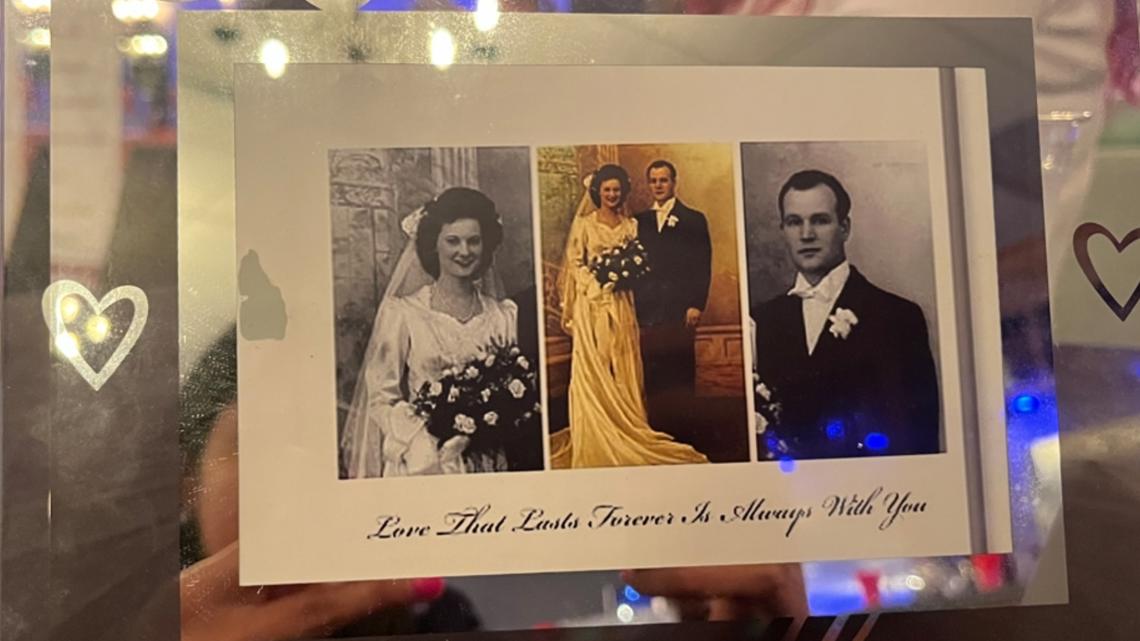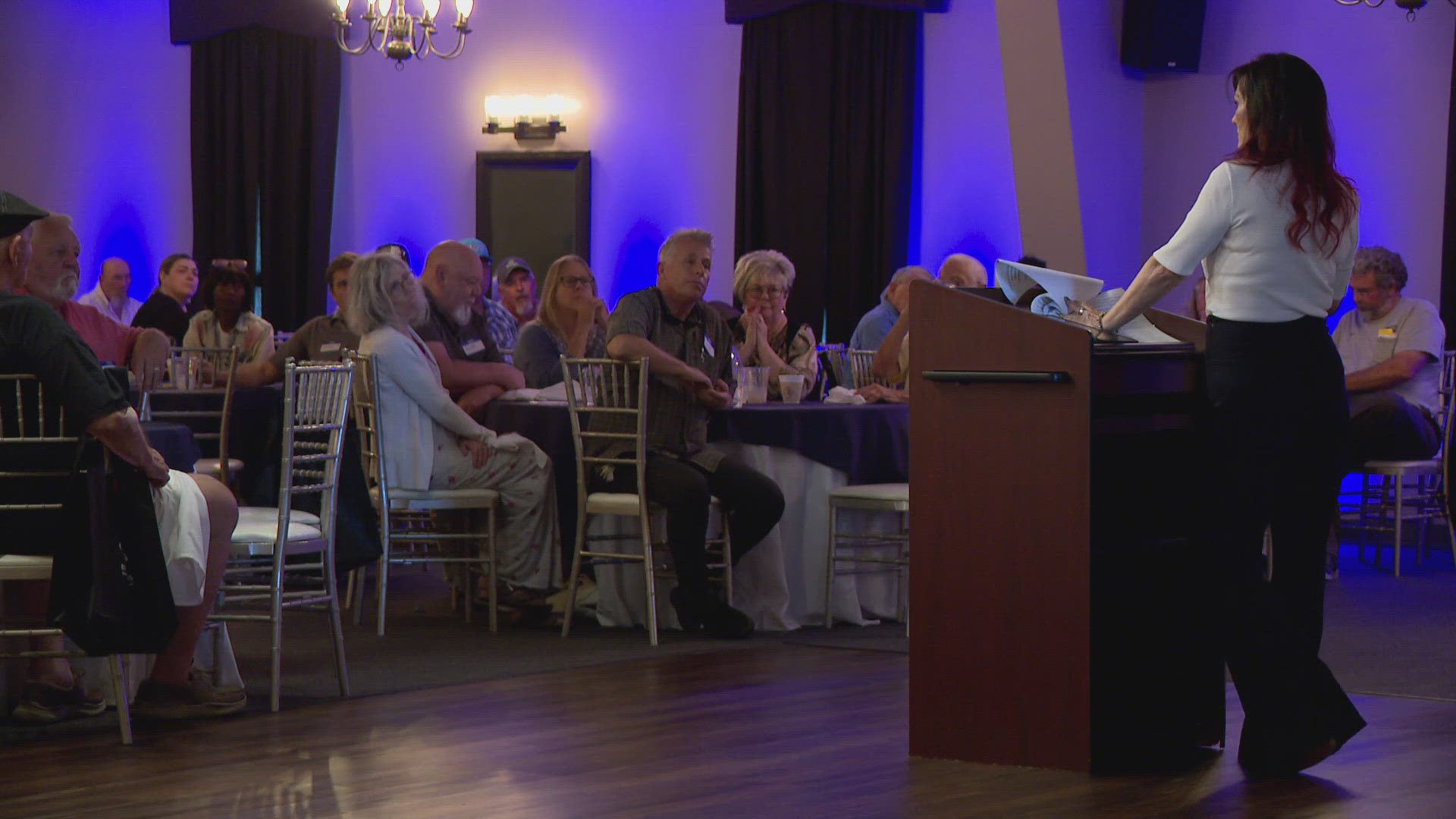ST. CHARLES COUNTY, Mo. — There is one less hurdle for nuclear weapons workers.
Thursday afternoon, there was some much-needed clarity given at an event meant to honor their hard work.
A resource fair and a celebration to honor all nuclear weapons workers took place at Trigg Banquet Center in O'Fallon, Missouri.
Each one received an Arch-shaped pin, with the words "Missouri Atomic Legacy" and dates at the bottom.


"My dad was a chemical operator, my mom worked in the lab," said Denise Brock.
Brock's parents motivated her passion and purpose.
Her parents worked at the Mallinckrodt plant in downtown St. Louis, which produced uranium for the development of the first atomic bomb.
"I believe in 1945, so it was before I was born. I heard about this legislation, if you worked at these facilities, Mallinckrodt was mentioned and if you had cancer you'd be eligible for compensation," Brock shared.
Both of her parents were sick and her dad died of cancer in his early fifties.


She said the government denied that her dad even worked at the plant, despite the fact that he spent 15 years there.
Brock fought for compensation and they won.
"We were able to prove that and mom was the first payment out in Missouri," she added.
Her dedication doesn't end there.
She's been an ombudsman for the National Institute for Occupational Safety and Health since 2006. Brock has helped thousands of workers receive $200 million in total for compensation.
Brock was also a speaker at the event honoring nuclear weapons workers.
Many in that room filed claims for federal compensation for potential exposure from work sites. The compensation would be through the program called Energy Employees Occupational Illness Compensation Program Act.
One of those laborers was Bill Maxey.
Maxey said, "I wouldn't have walked on that job if I'd known what was out there."
He worked at the Mallinckrodt plant and Weldon Spring site, a plant that processed uranium.
"There is a lot of people who worked there with health problems and we had a lot of foremen that passed away from various cancers," Maxey shared.
Nine months ago, Maxey received a letter from a federal government department.
"We got a letter from the Department of Energy about compensation for working on these jobs and being affected by the chemicals down there," he said.
His recent claim for compensation was denied.
Brock explained, "When they file a claim and the social security earnings are filed, it's going to get back to their subcontractor. The problem is all those subcontractors weren't listed in a database and neither were the workers."
That's where Brock steps in.
She pressured the U.S. Department of Energy to dig deeper. She said that recently, paper records were found in a Department of Energy facility in West Virginia.
"They found records from Weldon Spring and it lists the names of workers and subcontractors and 5,000 employees that were known to be out there," she said.
Brock was told those records were prioritized to be reviewed to hopefully get the green light.
"I think it can be a wonderful game changer," she said.
She made the announcement to the crowd on Thursday.
Her speech talked about working to help the workers and always remembering her parents - the main focus in her fight.
"As long as there is a breath in my body, I'll continue to fight for these workers," Brock told 5 On Your Side.
With these documents in the hands of the Department of Energy, these cases could be resolved soon.
Every claim is case-by-case; however, if compensated, workers could receive up to $400,000 with medical benefits.

